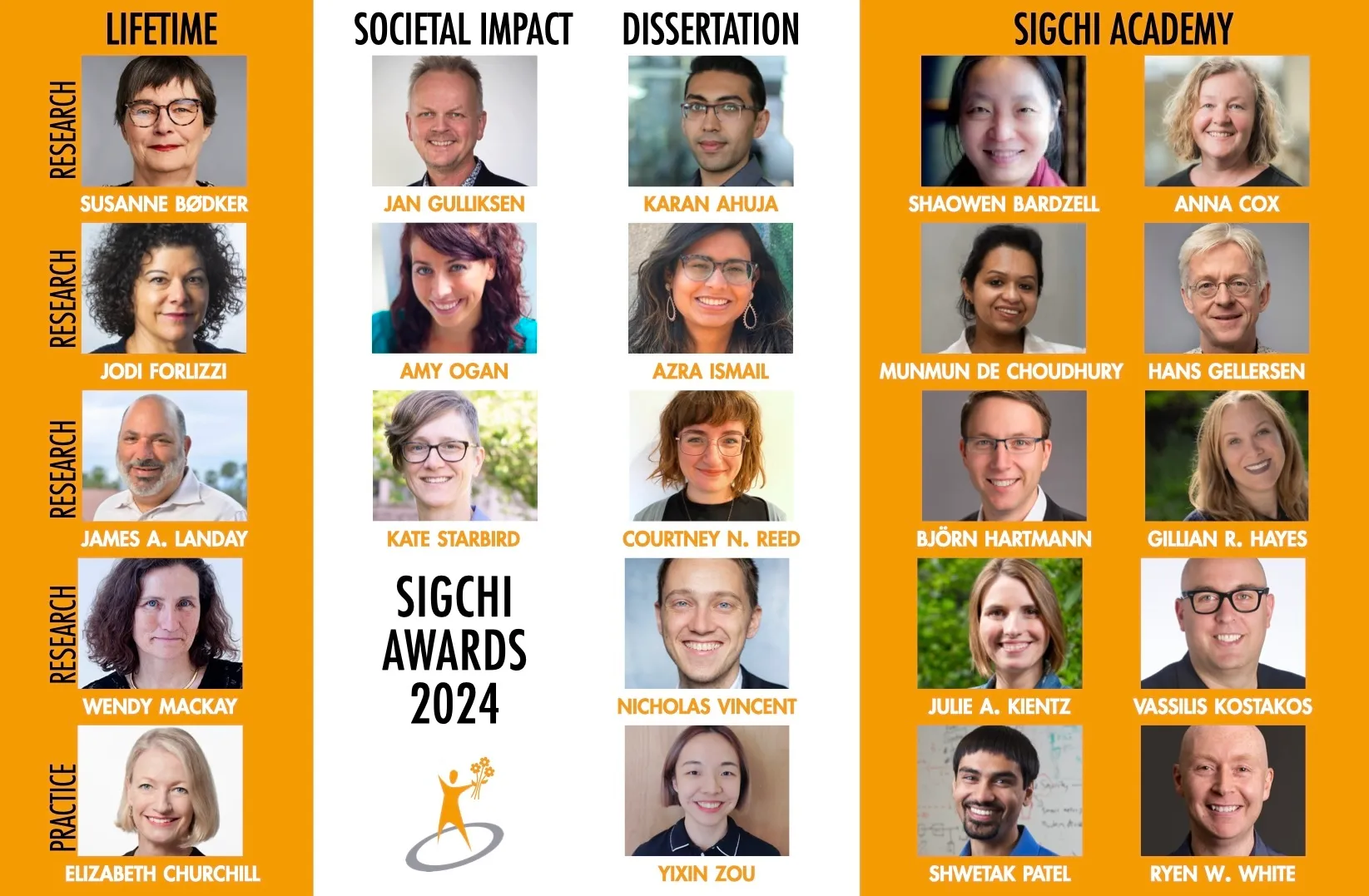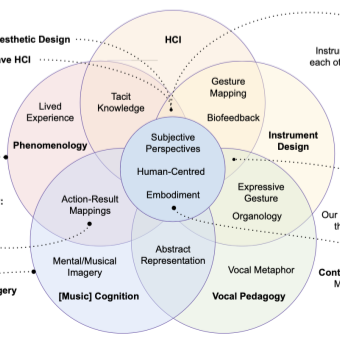acm sigchi outstanding dissertation award 🏆
I’m super happy to announce that my PhD thesis (linked at the bottom of this post!) has been awarded the ACM SIGCHI Outstanding Dissertation Award for 2024. I am extremely honoured and grateful to be among many fantastic awards recipients this year:

about the award
The award, granted by the Association for Computing Machinery (ACM)’s Special Interest Group in Human-Computer Interaction (SIGCHI), recognises “the most outstanding research contributions from recently graduated PhD students within the HCI community, showcasing the quality and impact of HCI research.” The SIGCHI Outstanding Dissertation Award is given annually, usually to 3 winners; this year, there were 5 incredible theses awarded this distinction. The awards are given for outstanding technical depth, significance of the research contribution, potential impact on the field of Human-Computer Interaction (HCI), and quality of presentation. In addition to the opportunity to give a talk at the premier international conference of HCI, the ACM International Conference on Human Factors in Computing Systems (CHI), the award includes an honorarium of $1,000, a plaque and recognition, and lifetime invitation to the annual SIGCHI awards banquet.
The nomination is made by the PhD advisor (thank you, Andrew!) with the support of an expert in the field who “can provide additional insights or evidence of the dissertation’s impact.” Many thanks to the incredible recommendation from Prof. Noura Howell at Georgia Tech to support this nomination, as well as to the awards committee led by Ian Oakley and Niklas Elmqvist, SIGCHI Chair for Awards, for their consideration of my thesis.
award citation
The award citation for the thesis was very thoughtful in describing my thesis’s contributions:
“Dr. Courtney Reed’s dissertation is a joy to read and fascinating to contemplate. It is a unique and interdisciplinary exploration of embodiment, sensorimotor imagery, and the mediating role of technology. It combines cognitive science, design theory, and music pedagogy with technical and artistic practices grounded in reflexive experience to contribute a nuanced, engaged, situated, and mature examination of biofeedback’s influence on bodily awareness and subjective experience in vocal practice. The committee appreciated the distinctive topic as well as the breadth of its ambitions, the sophistication of its analysis, and its captivating prose.”
